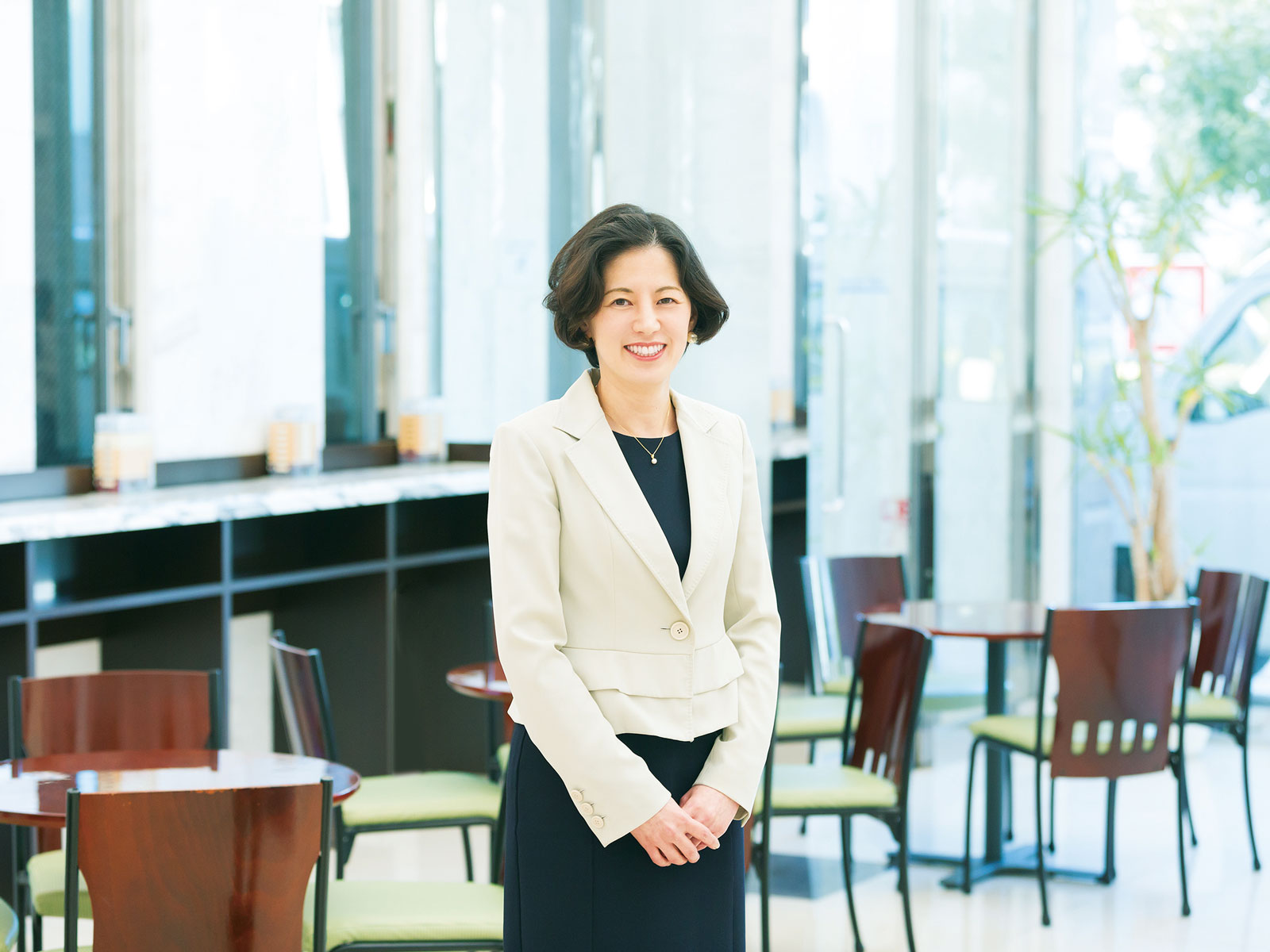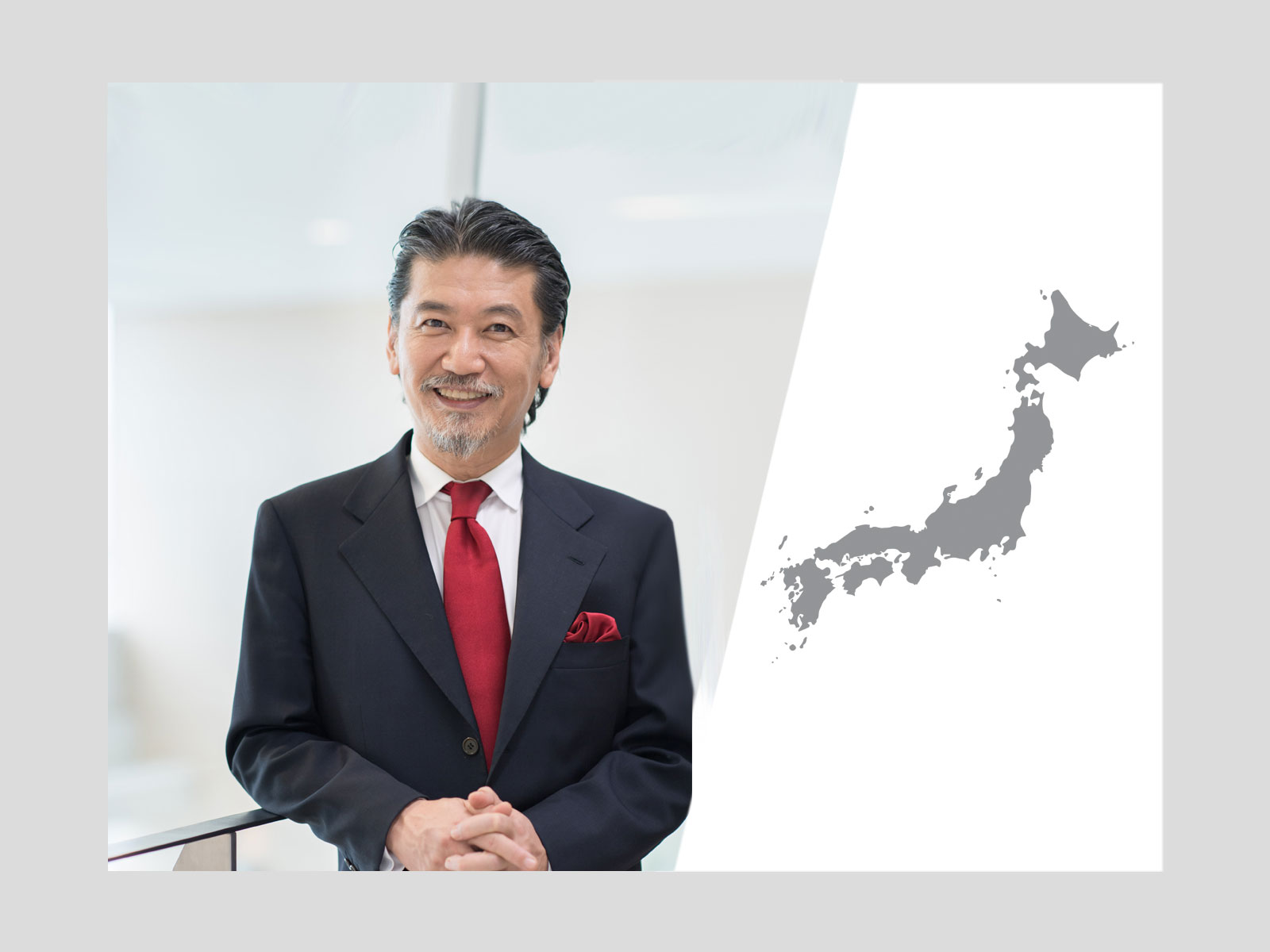BizNews (BN): Under your leadership, Toyoko Inn has positioned itself among the fastest growing hotel chains in Japan with significant profit increases year on year. Can you explain how the foundations were laid for this rapid growth?
Maiko Kuroda (MK): Between 2000 and 2005, Toyoko Inn expanded a lot and made significant investments in new locations. As the company opened various new hotels, the challenge as always was to make these new hotels profitable as fast as possible. Generally, it takes around three years to generate a stable profit from a new location because occupancy rates are lower at the beginning until the new hotel establishes its client base. Amidst this phase of challenging fast expansion, the founder of the company unfortunately had to leave his position.
So, when I returned from working in Germany and took over the company from my father five years ago, Toyoko Inn found itself at a crucial point. Everyone in the company was worried about the future. It was also a challenging time for me, but rather than giving up, I focused on how we could turn things around and put the company back on the right track. This wasn’t easy though. We tried many things, but at the beginning nothing really worked.
I sensed that, in these challenging times for the company, having excellent communication with my managers was crucial; therefore, I put a lot of effort into intensifying and further improving our internal communication. I felt it was particularly important to establish a feedback culture and listen closely to the hotel managers when thinking about how to make our hotels better overall. Since its early beginnings back in 1986, Toyoko Inn was famous for its high share of women in managing positions. When I took over as the CEO of the company, I continued with this philosophy and even increased the share of female managers over time. With my focus on enhancing internal communication, I felt that female managers could make a particular difference and lay the foundations for future growth of our company.
Then with the sad events of the triple disaster in 2011, the market environment changed drastically and suddenly Toyoko Inn found itself in a new situation. In the aftermath of this tragedy we managed to reposition ourselves in the market and find our way back to the growth track. We managed to improve our occupancy rates and thus achieve better profitability, which gave us the means to push forward with a targeted expansion — geographically, but also in terms of offer and services. Actually, since 2015 we have held the Guinness Book’s world record for the largest hotel with 24 hour, 100% occupancy. This record hasn’t been beaten yet — which is something we are proud of.
BN: Recently you announced your vision to increase your capacities from your current 50,000 rooms to 500,000 rooms over the next 30 years. What is your strategy for achieving this ambitious growth target?
MK: Yes, that is my goal and my dream. Of course, we cannot achieve this target if we only look at opportunities domestically. Therefore, we are pushing forward with our expansion overseas. Unlike other companies though, we do not want to expand with a franchise model for instance, which would of course allow us to grow faster. We are following a particular philosophy, which we believe is the best way for us to grow sustainably.
Our approach is built on our conviction that we can only build successful hotels that provide a unique experience to our clients if we collaborate closely with the local community in the places where we establish our facilities. For instance, our hotels do not have restaurants or banquet halls, which gives our guests the opportunity to visit the restaurants in the neighbourhood, mingle with the local community and get a local experience. Also, from a management perspective, Toyoko Inn follows an approach that is focused on working closely together with the local community. We generally ask landowners to build the hotel, and we run our business by renting the building and slowly becoming accustomed to the local community with the help of the landowner.
Applying this approach to our international expansion also comes with some challenges. We have to deal with different environments, and understand and work with other mind-sets and mentalities. Of course, also in overseas markets we would like to utilise and build on our business model and processes that we have successfully established here in Japan; for example, how to treat customers and how to train our staff members. However, it is still very early days in this process for us. We will see what the future holds in this regard and to what extent we will have to adjust our plans and business model according to the unique challenges and opportunities of each location.
BN: In 2020, Tokyo will host the Olympic and Paralympic Games, which are expected to draw no less than 40 million visitors, tourists and businessmen alike to the country. In addition, with the recently sealed free trade agreement between Japan and the European Union, the number of European businessmen in Japan and vice-versa will increase significantly over the next few years. What opportunities does this bring for Toyoko Inn?
MK: Of course, this growing interest in Japan and the higher numbers of foreign visitors coming to our country means that there will also be new opportunities for our company. I have to admit though that so far we have not focused specifically on foreign tourists in our business model. Originally, we have aimed to provide comfortable and clean accommodation for business customers — traditionally the core focus of our business. Of course, over time this offer has also started to be appreciated by families and foreign tourists.
From client feedback, we know that tourists, for instance, appreciate particularly the fact that all our hotels are located close to train stations, which makes it very convenient for them to move around the city. In addition to that, every Toyoko Inn is designed to the same standards and offers the same services. So once a client has become familiar with our concept, it is very easy for him or her to stay conveniently in any of our locations — this is particularly attractive to foreigners who do not speak Japanese and may be struggling to find their bearings in other hotels in Japan. Certainly, tourists who stay with us also appreciate our competitive prices and the simple but modern interior of our rooms, as well as the overall cleanliness. So one can say that, without amending our product particularly to the needs of tourists, we are honoured to already count many tourist travellers among our frequent clients.
In the future, in light of the developments you outlined, this group of clients will certainly become more relevant to us. We do not have any specific plans to cater for them as yet, however of course we will look into this, in case we see some need and potential in this area in the future.
BN: Toyoko Inn stands out as a company with a very high proportion of women in top management positions. This is something uncommon in a country in which men account for 93% of management roles. What is the role of Toyoko Inn as forerunner in this regard?
MK: As I said initially, when I became the CEO of the company I continued with the philosophy of hiring mainly female managers. I mentioned that this step helped me to optimise communication among my staff, but also it helped to increase our customers’ experience. In fact, over the years the share of women in our managing positions grew to more than 97%. Our female managers are doing an excellent job in anticipating and responding to customer needs, and keeping hotel operations running smoothly — in both management and the front office. When talking about our human resource policy, there is another element that needs to be highlighted. One in four of our employees is over sixty years old. Many have been with us for many years, we highly value their experience, which allows younger employees to learn from them and also translates into a better experience for our clients.
BN: You opened a hotel in March in Frankfurt and you are opening a second hotel there soon I think?
MK: Yes, that’s correct; we did open a hotel in Frankfurt earlier this year. We also have plans for another project in Frankfurt, but construction hasn’t started yet. There is also a project in Berlin and we are looking forward to starting construction there soon. In the case of Berlin, though, we are still struggling though to find the right partner to build the hotel. We have all the designs and plans ready, and are now intensively looking for the right construction company that could work with us on the project. The designers of our building are German and so, ideally, we are looking to find German builders as well. In our next phase of expansion, we are looking at hotels in other European cities, such as in Marseille, where we plan to open a hotel next year.
BN: Who is your target group for these hotels in Europe?
MK: As far as the first Frankfurt hotel is concerned, 43% of our guests are German. Europeans, collectively, comprise 60% of our guests. Japanese customers represent 10% and the rest are mostly Korean and Chinese. Given that in our hotels in Japan most of our clients are Japanese, with only around 13% being foreigners, catering mainly to clients from other countries was something new for us. But the feedback we got from our first clients in Frankfurt was very positive and reinforced our belief that our product is well-perceived in the European market. The reviews show that our clients there particularly appreciate the cleanliness of our facilities and our staff, as well as the delicious breakfast options.
BN: Germany is a very competitive market, specifically in the hospitality industry. What makes you confident that you will succeed in the highly sophisticated German market in the long run?
MK: Firstly, I would like to emphasise that over the years we have successfully built more than 50,000 hotel rooms in a consistent way. We usually plan, design and coordinate the construction ourselves, which allows us to provide functional and inviting quality rooms at a competitive price level. This experience and know-how makes us very confident that we will be able to introduce a winning product to the German and European market that provides our guests there with an excellent experience. Quality is a very important aspect for us, we have high standards in this regard and won’t compromise on those wherever we go. So our clients, either in Japan or any other location, can rely on our service and our infrastructure. To make a long story short: we offer rooms for a very good price, but our clients can be sure that their room will be clean and that they will have hot water in the shower. Of course, another element that makes us stand out from the competition is our staff that do everything to give our clients the best experience possible.
I would particularly like to thank the people in Frankfurt. When we opened the hotel there, we invited the Frankfurt Tourism Bureau and Hotel Association and they joined our grand opening and also gave speeches. I feel immensely grateful to them for all their help. We will do our best not deceive these people who have welcomed us so warmly. Also, while maintaining our business model, we will do everything we can to listen carefully to our European guests’ feedback and accommodate them in the best way possible. We look forward to more fruitful collaborations with German partners and to welcoming more German guests to our hotels — inside and outside Japan.



